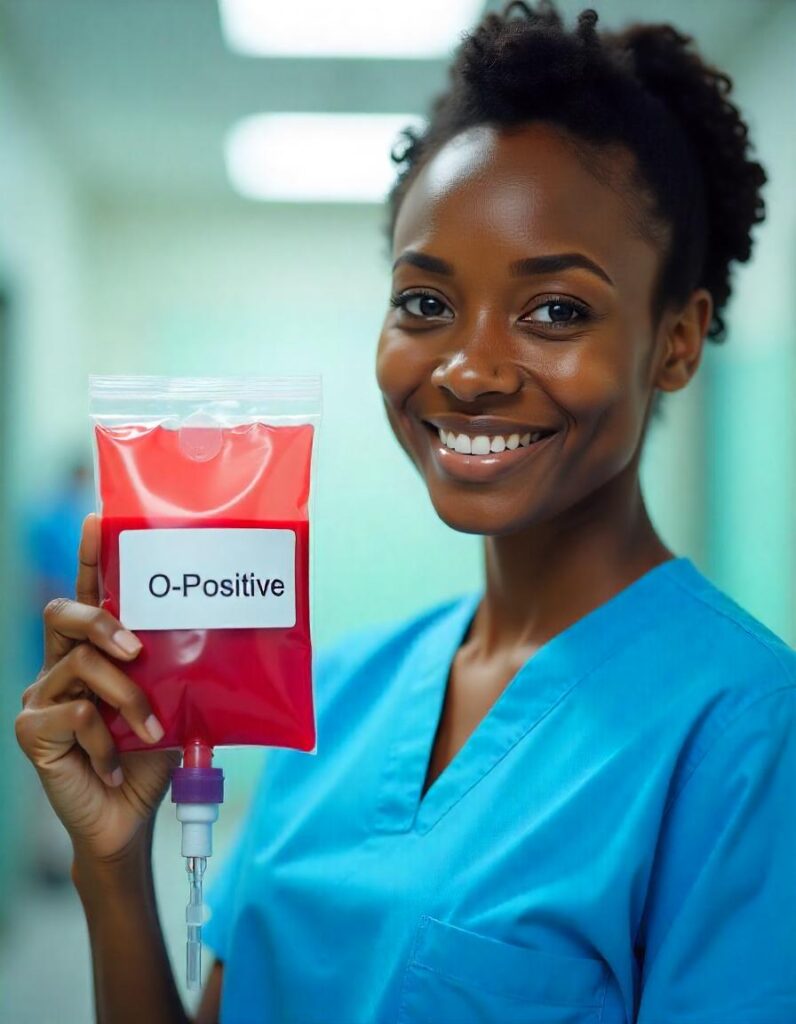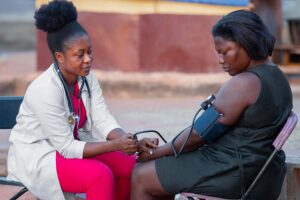When you donate blood, you’re not just offering a few pints – you’re offering a life-saving gift. In Nigeria, one blood type stands out in high demand: O Positive blood. With its universal compatibility for positive blood groups, O Positive is a critical resource for hospitals, blood banks, and emergency responders. But why is O Positive so valuable, and how can you help ensure that there is always enough blood on hand? This article explores the demand for O Positive blood, its significance, and how your blood donation can make a life-changing impact.
Why Is O Positive Blood So Important?
O Positive blood is one of the most needed types in medical emergencies because it can be transfused to individuals with any positive blood group. This makes it a versatile and vital resource. The rhesus factor plays a key role in determining compatibility. O Positive blood can be given to patients with A Positive, B Positive, AB Positive, and O Positive blood types. In essence, O Positive blood is a safety net for hospitals and blood banks, especially in critical situations where there isn’t time to match specific blood types.
In Nigeria, where road accidents, childbirth complications, and surgical emergencies are all too common, having a steady supply of O Positive blood is crucial for saving lives. Plasma donation and platelet donation are also important, but whole blood – especially O Positive – is in constant demand due to its wide-ranging compatibility.
The Blood Donation Process – What You Need to Know
If you’re wondering how to get involved in blood donation, it’s easier than you think. The process typically involves a simple blood donation session at a blood donation center or plasma center. Here’s what to expect during your donation:
-
Registration: You’ll fill out a brief health questionnaire to ensure you’re eligible to donate blood.
-
Screening: A small sample of your blood is taken to check for any infectious diseases.
-
Donation: A needle is inserted into your arm, and approximately one pint of blood is collected. The process takes about 10-15 minutes.
-
Post-donation Care: After donation, you’ll be given refreshments and encouraged to rest briefly.
The entire process is safe, straightforward, and typically takes less than an hour. Donating plasma or platelets is a similar process, but there may be slight differences in how your blood is collected. Remember, donating plasma or blood has major health benefits, like improving your heart health and boosting the production of red blood cells.
Why Blood Donation is Critical in Nigeria
In many parts of Nigeria, the demand for blood often outstrips the supply. One of the key reasons is that blood donation rates are still relatively low, and many people aren’t aware of the constant need for donations. Without consistent blood donations, hospitals face severe shortages, particularly when it comes to O Positive blood.
Moreover, selling plasma is a common practice in some countries, but in Nigeria, there is still a lack of infrastructure to support this form of donation at a large scale. Plasma donation centers are fewer, making it harder to access blood and plasma during times of crisis.
The cost of cord blood banking is also an important factor to consider. While blood cord banking (storing blood from the umbilical cord) is an emerging practice, it remains a costly option for many families. This is why regular blood donation drives and blood donation websites like Oneus in Nigeria play an essential role in educating the public and helping bridge these gaps.
Health Benefits of Donating Blood
Aside from the moral benefits of helping save lives, blood donation has personal health benefits as well. Studies show that donating blood regularly can help reduce your risk of certain diseases, including iron overload and heart disease. For your skin, donating blood can even give you a healthy glow by improving circulation and oxygen flow to your skin cells. Additionally, donating blood helps regenerate red blood cells, promoting overall health.
It’s not just about physical health – blood donation provides emotional fulfillment. The simple act of helping someone who may be critically ill or injured offers a sense of community and purpose.
How You Can Help – Donate Today!
Now that you understand the importance of blood donation, you may be asking yourself, “How can I help?” The answer is simple – donate blood! Here are a few steps you can take:

-
Visit a Blood Donation Center: Donating blood doesn’t require any special preparation. Visit a local blood bank or a scheduled blood drive in your area.
-
Be a Regular Donor: If you are eligible, consider donating blood every 3-4 months to maintain a steady supply.
-
Spread the Word: Encourage friends and family to donate blood. You can also share knowledge about O Positive blood’s importance on social media to raise awareness.
-
Support Blood Drives: Participate in or help organize blood donation drives through schools, workplaces, and local community centers.
Call to Action: Give Blood, Save a Life
Now that you know how important O Positive blood is, it’s time to take action. Oneus in Nigeria is committed to making blood donations easy, safe, and impactful. You can help by donating O Positive blood and becoming part of the solution to save lives in Nigeria.
Give Blood, Save a Life – Book Your Donation Now! Reach out to Oneus for more information on how you can donate blood or plasma. Contact us at info@oneusng.com, call +234 902 168 2822, or visit our website at https://www.oneusng.com/.
Together, we can make a difference – one donation at a time.




